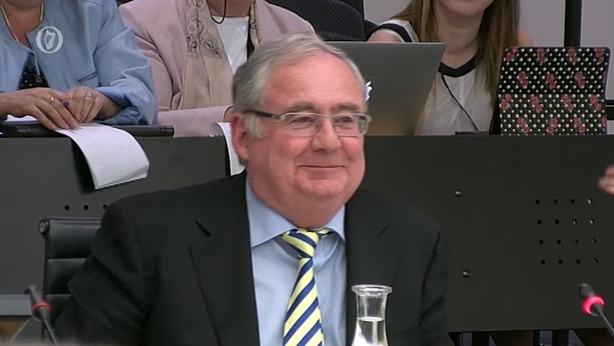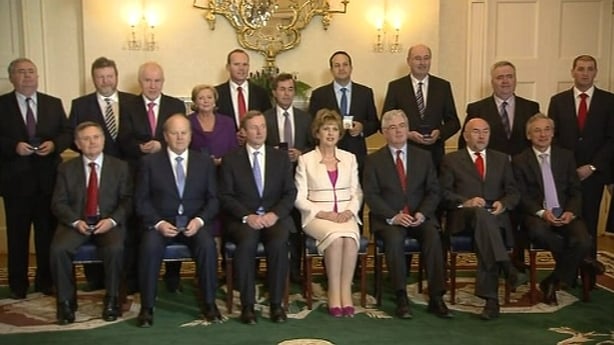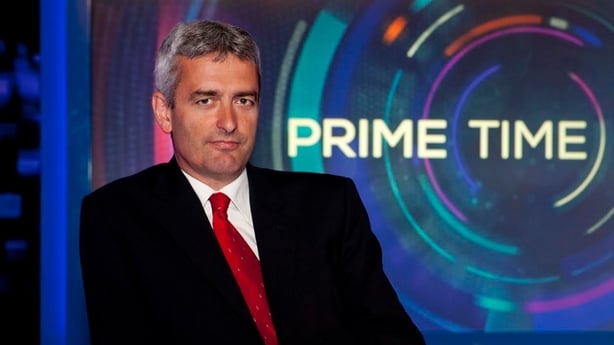After the impending general election, smaller parties are likely to be faced with a choice – whether or not to consider entering government as the junior partner in a coalition, writes Prime Time's David McCullagh.
The experience of other junior coalition partners is not encouraging. Labour is facing a very difficult election in 2016; the Greens were wiped off the electoral map in 2011; the Progressive Democrats were reduced to just two seats in 2007.

As Pat Rabbitte ruefully put it some time ago: "I share the puzzlement as to why we get 19% of the vote, and 90% of the blame."
He shouldn’t have been surprised, given that Labour has lost support every time it has been in government – in the elections of 1951, 1957, 1977, 1982, 1987, and 1997.
There seems to be some kind of a pattern here.
Why should this be so? Opponents on the left view it as a fairly simple equation – Labour wins support on the basis of left-wing policies, then goes into power with a larger right-wing party, implements right-wing policy and loses support at the following election.

Labour supporters, naturally, claim this is unfair. They point to all the party has achieved (marriage referendum, anyone?) and then say things would have been much worse if they weren’t at the Cabinet table.
The latter point may or may not be true – as a counter-factual, it can’t, by definition, be proved.
Labour can argue that it has punched above its weight in this coalition, winning the argument with Fine Gael on issues like the split between tax and spending, the preservation of most core social-welfare rates, the marriage referendum and abortion legislation.
However, it has also given ground on many issues close to Labour values - cuts to Jobseeker’s Benefit for young people, the respite care grant reduction, changes to lone-parent benefits, and many, many others.
The smaller party always seems to get the blame for things going wrong, and none of the credit when things go right. So, is it an iron law of Irish politics that the junior partner gets punished disproportionately after a spell in government? Not entirely.
While other parties have suffered a similar experience to Labour - Clann na Poblachta, Clann na Talmhan, Democratic Left and the Greens - one smaller party, the Progressive Democrats, bucked the trend, not once but twice.
The party increased from six seats to ten in 1992, and doubled from four to eight in 2002.

But on both occasions it was, in effect, running as an opposition party. In 1992, Des O’Malley pulled out of government after taoiseach Albert Reynolds made life intolerable for his party.
And in 2002, the PDs ran on a platform of opposition to a single-party Fianna Fáil government – the very party they had been in coalition with for the previous five years!
Being junior partner in a coalition is clearly risky – but what are the alternatives?
One option is to support a minority government from the outside – but the experiences of Labour in 1932 and 1937, and the Workers’ Party in 1982, aren’t very encouraging.
In each case the Fianna Fáil government concerned lasted less than a year, the supporting party got very little credit for their support, and the voters didn't seem impressed.
The alternative is to remain on the opposition benches, where ideological purity can be maintained. On the other hand, it’s not usually a place where much can actually be achieved.
There are, it appears, few easy answers for a smaller party.
By Prime Time's David McCullagh


